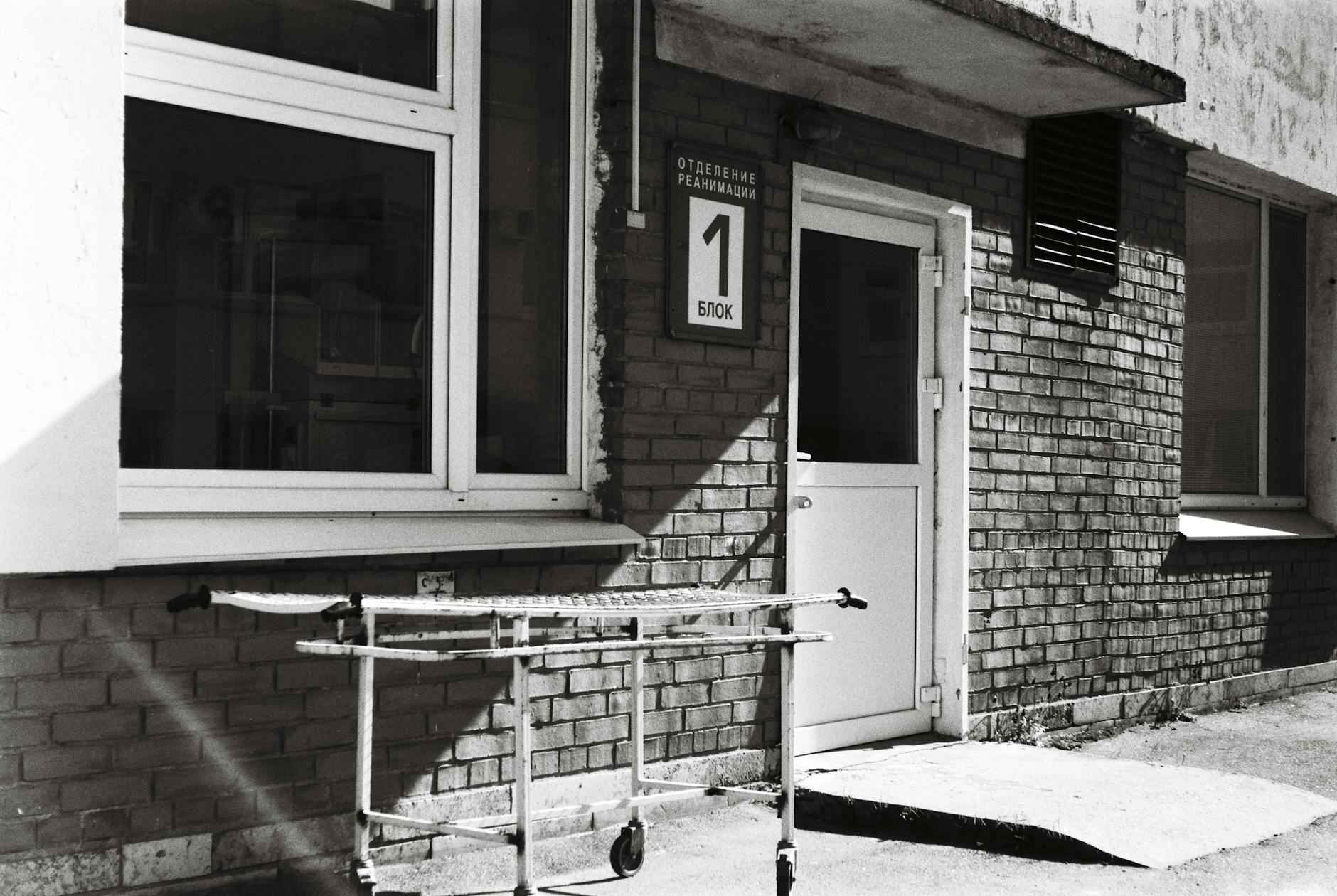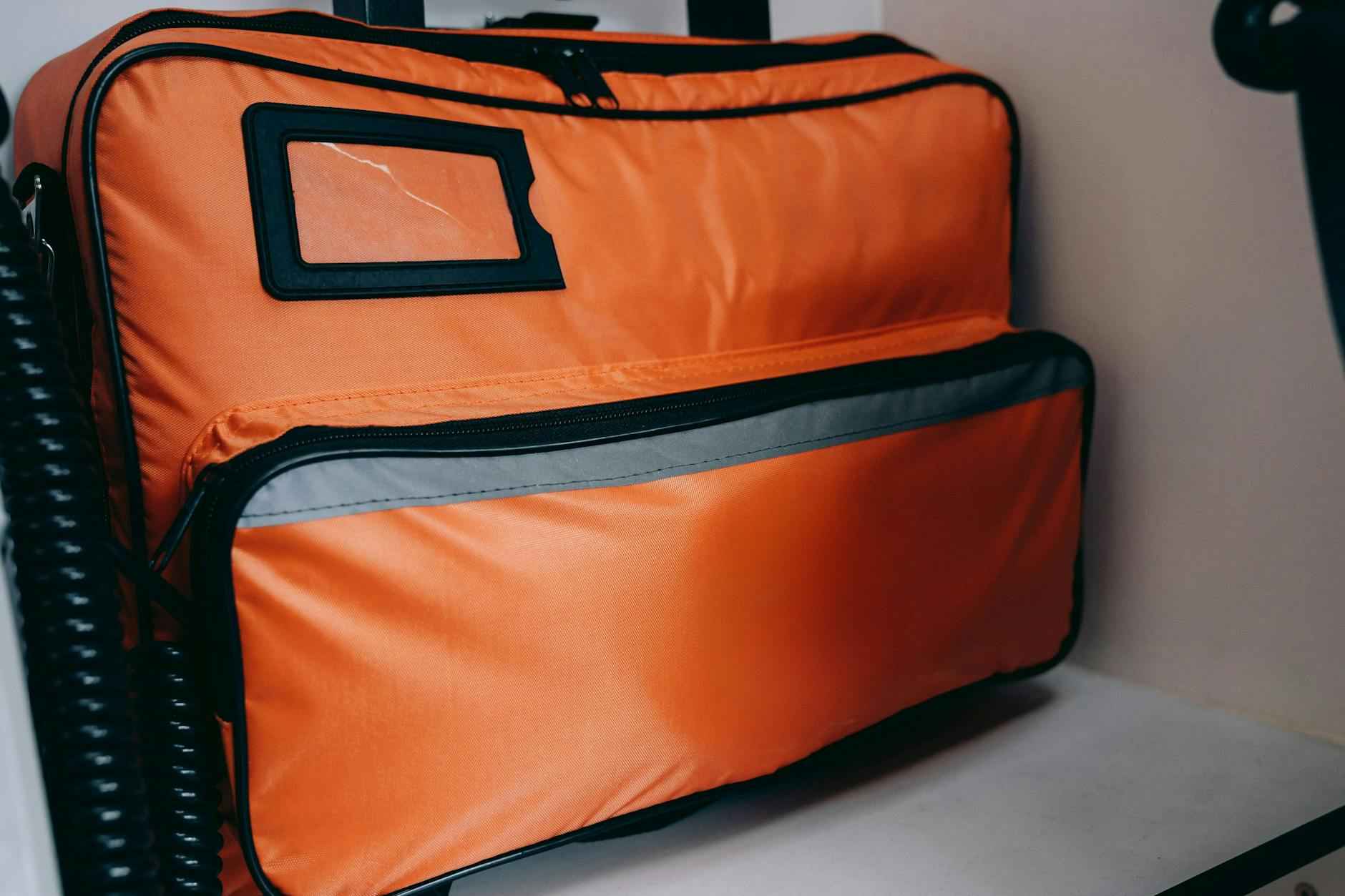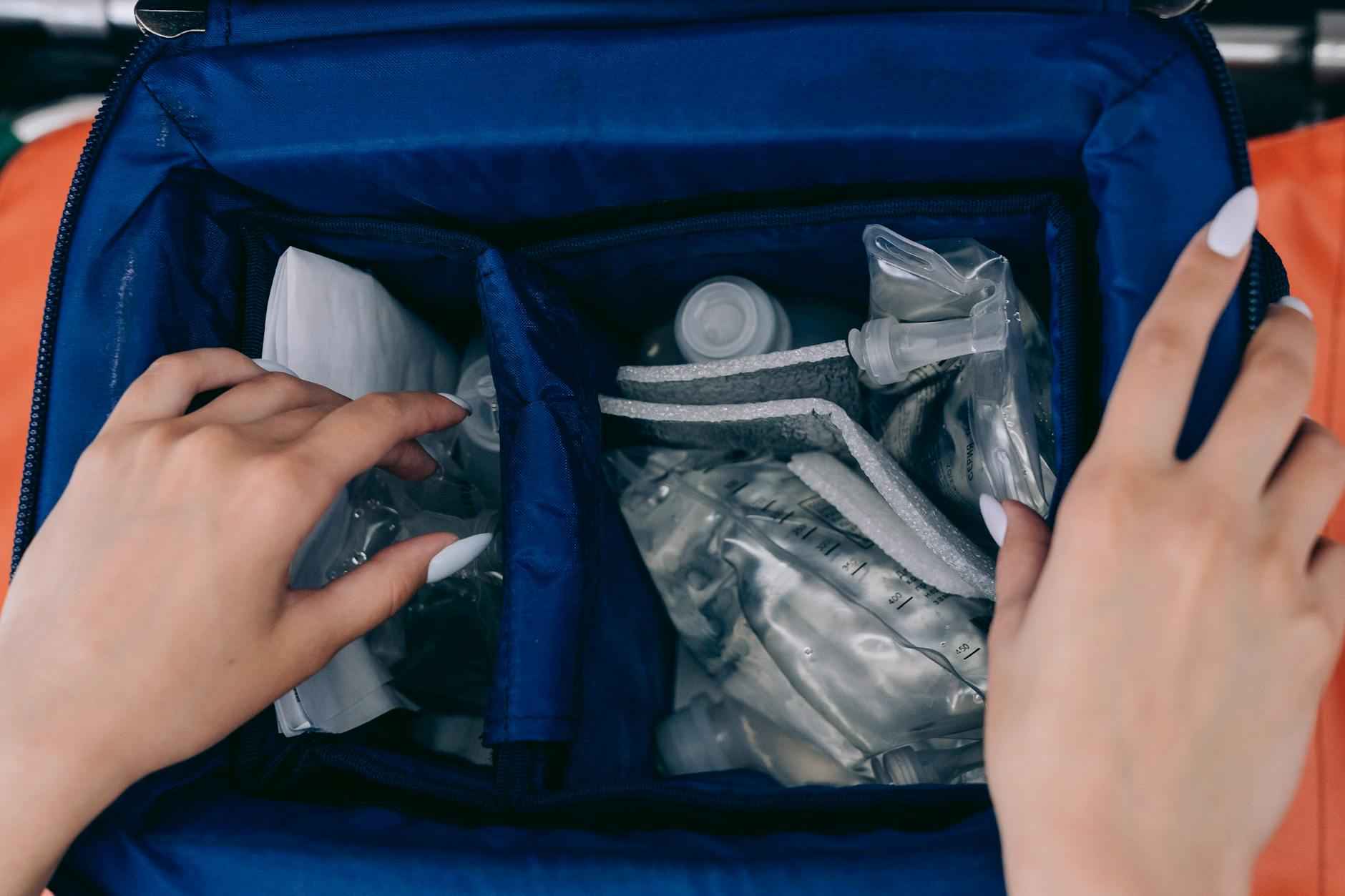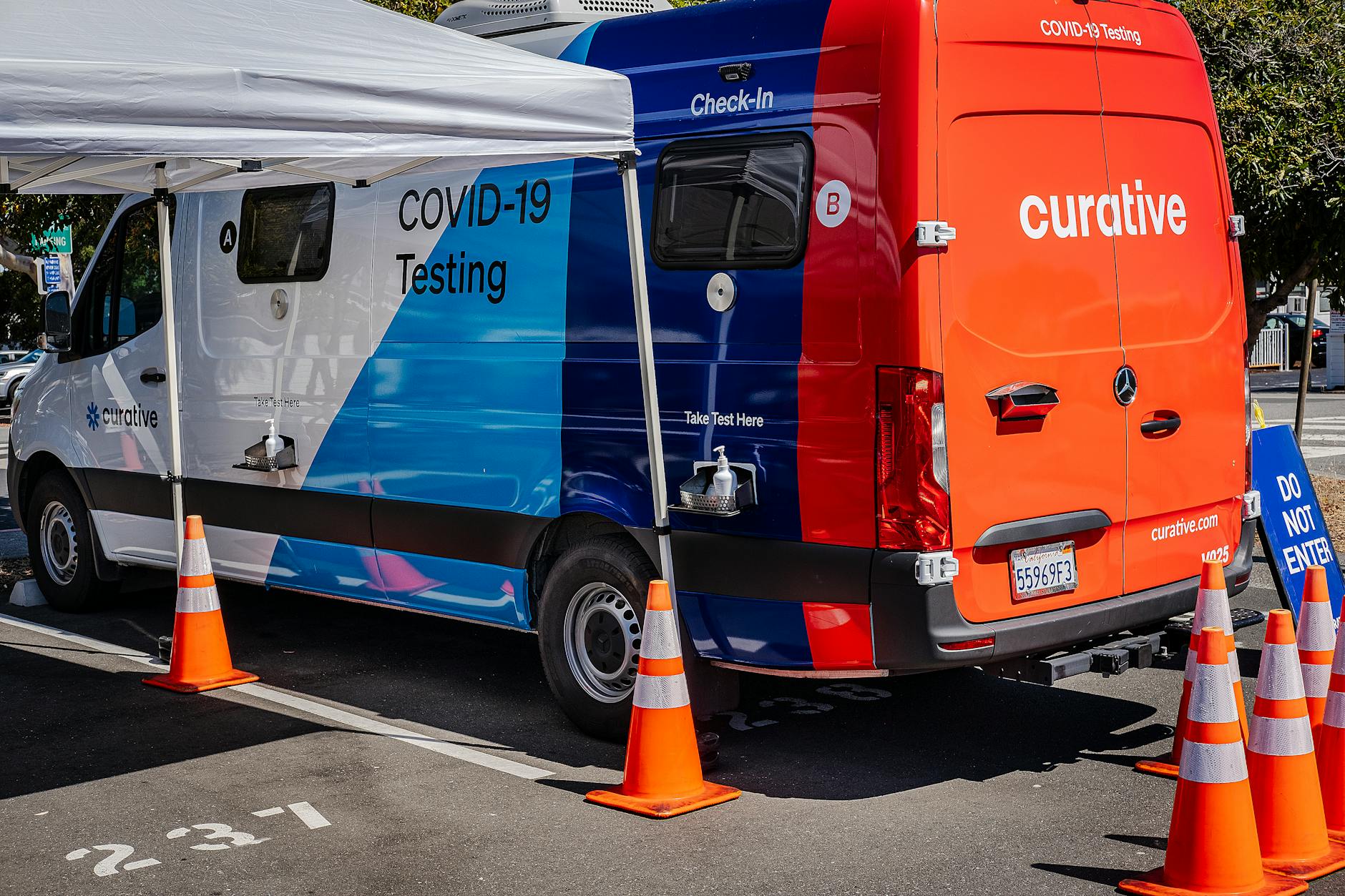In today’s world, not having insurance can feel like a death sentence when it comes to healthcare. But fear not, cause there are ways to navigate this tricky landscape. You just gotta be a little creative and maybe, just maybe, a bit lucky.
Understanding the Basics of Healthcare Access
First off, you gotta know what healthcare access even means. It’s like, how can you get medical help, right? So, let’s break it down a bit. Basically, it’s about getting the help you need when you’re sick or hurt, duh!
Community Health Clinics
Community health clinics are like little lifesavers for those without insurance. They provide low-cost or free services, but sometimes they can be super crowded. You might find yourself waiting for ages, which is kinda annoying, but hey, at least you’re getting care.
- What Services They Offer: These clinics typically provide basic services like check-ups, immunizations, and sometimes even dental care, which is great, but not always enough. You might leave feeling like you need more.
- Eligibility Requirements: Most clinics have some sort of eligibility requirements, but honestly, it’s not that complicated. You just need to show proof of income or residency, which can be a hassle.
- Finding a Clinic Near You: There’s usually a website where you can search for these clinics, but it can be a bit of a maze. Just type in your zip code and hope for the best!
Sliding Scale Payment Options
Some places offer sliding scale payments based on your income, which is like, a lifesaver, right? But be prepared to show some financial documents, which is annoying. It’s like they want to know everything about your life.
Urgent Care Centers
Urgent care centers can be a good option for non-emergency situations. They are generally cheaper than ER visits, but still, you might wanna call ahead to check prices. Because who wants to be surprised by a bill?
- When to Use Urgent Care: If you have a minor injury or illness, urgent care is usually the way to go. Just don’t expect them to handle anything serious, cause that’s not really their thing.
- Cost Comparison with Emergency Rooms: Emergency rooms are often way more expensive, like, you could end up paying thousands for a simple visit. So, yeah, urgent care is a no-brainer if you can help it.
Telehealth Services
Telehealth is becoming more popular, and it’s great for those who can’t get to a clinic. But, not everyone has access to the internet, which can be a real bummer. I mean, what if you’re stuck in the middle of nowhere?
- How Telehealth Works: Basically, you can have a consultation over video or phone, which is super convenient, but sometimes the connection can be spotty. Like, hello? Can you hear me now?
- Cost of Telehealth Visits: Costs for telehealth can vary widely, and sometimes they might even be covered by some programs, but don’t count on it. You never know.
Pharmacy Assistance Programs
If you need medication but can’t afford it, pharmacy assistance programs might be worth checking out. They can help lower the cost, but it’s a bit of a process to apply. And who has time for that?
- Finding Assistance Programs: Most big pharmacies have these programs, but you gotta do some digging to find out what they offer. It’s not always straightforward, you know?
- Eligibility for Medication Discounts: Eligibility can depend on your income level, and you might need to fill out some forms, which can be a pain. But, hey, saving money is worth it, right?
Local Nonprofits and Charities
Nonprofits and charities can also be a great resource for healthcare access. They often provide services or financial help, but they can be hard to find if you don’t know where to look. It’s like a treasure hunt!
- What They Can Offer: Some nonprofits offer free clinics, while others might help with transportation to appointments, which is super helpful but not always available.
- Finding Local Organizations: You can check online for local organizations, but honestly, it can feel like searching for a needle in a haystack sometimes.
Conclusion: Navigating Healthcare Without Insurance
In conclusion, accessing healthcare without insurance is totally possible if you know where to look. It may take some effort, but it’s worth it for your health! Just remember, you’re not alone in this crazy journey.

Understanding the Basics of Healthcare Access
First off, you gotta know what healthcare access even means. It’s like, how can you get medical help, right? So, let’s break it down a bit. Basically, it’s about how easy or hard it is to get the care you need. Some folks think it’s just about having insurance, but that’s not the whole picture. There’s a lot more to it, and honestly, it can be kinda confusing. Not really sure why this matters, but it does.
- Access can mean different things to different people. For some, it’s about physical distance to a doctor. For others, it’s about costs or even the type of services available.
- Did you know that in some areas, people have to travel hours just to see a doctor? Like, what’s up with that?
- Then there’s language barriers, which can make it even harder for some folks to get the help they need. It’s like, come on, we gotta do better!
So, when we talk about healthcare access, we gotta think about all these factors. It’s not just a straight line from A to B. It’s more like a maze, and some people are just better at navigating it than others. And here’s the kicker: even if you have insurance, it doesn’t guarantee you’ll get the care you need. Like, what’s the point of that, right?
Another thing to keep in mind is that healthcare access isn’t just about physical health. Mental health is super important too, but often gets overlooked. Maybe it’s just me, but I feel like we need to talk more about mental health access. It’s like, if you’re struggling mentally, but can’t find help, what’s the use of having insurance?
| Factor | Impact on Access |
|---|---|
| Distance to Providers | Long travel can discourage people from seeking care |
| Cost of Services | High costs can lead to people avoiding necessary treatments |
| Availability of Services | Lack of specialized services can limit treatment options |
| Language Barriers | Can create misunderstandings and limit access to care |
And let’s not forget about community resources. They can be a lifesaver for many people. Some might not know that there are clinics out there that provide services for free or at a reduced cost. But finding those clinics can be a whole other adventure. Seriously, it’s like a scavenger hunt, and not everyone has the time or energy for that.
In conclusion, understanding healthcare access is crucial if you want to navigate the system effectively. It’s not just about having insurance or a doctor’s appointment. It’s about recognizing the barriers that exist and figuring out how to overcome them. It might take some effort, but hey, your health is worth it, right?

Community Health Clinics
are like little lifesavers for those without insurance. They provide low-cost or free services, but sometimes they can be super crowded. I mean, who doesn’t love waiting in a line that feels like it goes on forever, right? Not really sure why this matters, but it does. These clinics are a beacon of hope for many folks who just can’t afford the high costs of traditional healthcare.
So, what exactly do these clinics offer? Well, it’s not just a one-size-fits-all deal. They typically provide a range of services, from basic check-ups to immunizations and even dental care. But, and here’s the kicker, the availability of services can vary. Sometimes you might find a clinic that does everything, and other times, you might just get a band-aid and a pat on the back. Basic healthcare services are crucial, but they might not always cover everything you need.
- Routine check-ups
- Vaccinations
- Dental services (if you’re lucky!)
- Mental health support
Now, eligibility requirements can be a bit of a maze. Most clinics want proof of income or residency, which can feel like a hassle. But honestly, it’s not that complicated. You just gotta bring some documents that show you’re not rolling in dough. But sometimes, it’s like, do I really need to prove I’m broke?
Finding a clinic near you is usually as simple as typing your zip code into a search engine. But let’s be real, it can feel like navigating a labyrinth. You might end up with a list of clinics that are miles away or, even worse, closed. Just remember to check their hours because you don’t want to show up only to find a locked door.
Many clinics offer sliding scale payment options, which means your fees can change based on your income. It’s like a game of “how low can you go?” But be prepared to show some financial documents, which can be annoying. I mean, who wants to dig through their old pay stubs just to get a check-up?
And let’s not forget about urgent care centers. They can be a good alternative for non-emergency situations. Generally, they’re cheaper than ER visits but still, you might wanna call ahead to check prices. It’s like, do I really want to risk a huge bill just for a sprained ankle?
In conclusion, navigating healthcare without insurance is totally possible if you know where to look. It may take some effort, but it’s worth it for your health! So, don’t lose hope. Just remember that there are resources out there, and with a little persistence, you can find the care you need.
What Services They Offer
Community health clinics are like those unsung heroes, ya know? They often provide a variety of services, but it’s not always enough to cover everything you might need. They typically offer basic services like check-ups and immunizations, which is great for keeping you healthy, but there’s more to healthcare than just that. Like, what if you need a specialist or something? Not really sure why this matters, but it feels like a big deal, right?
- Check-ups: These are super important for catching any issues early, but you might be waiting a while to get an appointment. I mean, who has time for that?
- Immunizations: They’re crucial for preventing diseases, but not every clinic has all the vaccines available. It’s like a game of roulette with your health!
- Dental Care: Some clinics offer dental services too, which is awesome, but don’t expect a full-service dental experience. It’s more like a quick fix, ya know?
But that’s just the tip of the iceberg. Community health clinics might also provide mental health services, which is super important, especially nowadays. But again, the availability can vary. Sometimes, they have counselors on-site, but other times, you might get referred out, which can be a pain.
| Service | Availability | Notes |
|---|---|---|
| Check-ups | Often available | May require long wait times |
| Immunizations | Limited | Not all vaccines may be offered |
| Dental Care | Sometimes | Basic care only |
| Mental Health Services | Variable | May need referrals |
And let’s not forget about preventive services! Some clinics offer screenings for things like diabetes or high blood pressure, which is super helpful. But, you gotta keep in mind that not all clinics have the same level of resources. It’s like a box of chocolates, you never know what you’re gonna get.
Also, if you’re looking for family planning services, some clinics do provide that. But honestly, the quality can vary, and you might not get the same options as you would in a private clinic. Maybe it’s just me, but I feel like having choices is important when it comes to your health.
So, while community health clinics are a great option for basic healthcare, it’s important to know their limitations. They’re fantastic for certain services, but if you need something more specialized, you may have to look elsewhere. It’s like, they can help you get by, but don’t expect them to solve all your problems. Just keep your options open and do your research!
Eligibility Requirements
When it comes to accessing community health clinics, there’s a lot of talk about , but honestly, it’s not that hard to figure out. I mean, you just gotta show some proof of income or residency, which can be a hassle, but it’s not like they’re asking for your life story or anything. You know, just the basics.
- Proof of Income: This is usually a pay stub or a tax return. Not too complicated, right?
- Proof of Residency: You might need a utility bill or a lease agreement. Just something that shows you live where you say you do.
- Identification: Sometimes they want a government-issued ID, which makes sense, but can be annoying if you don’t have one.
Now, you might be thinking, “Why do I even have to do this?” And honestly, that’s a valid question. But clinics need to make sure they’re helping the right people, I guess? It’s kind of like a bouncer at a club, but for healthcare. Not really sure why this matters, but it’s just how it is.
Also, there’s this thing called a sliding scale payment option that some clinics offer. Basically, if you’re making less money, you pay less. It’s like a discount, but you gotta show them your financial situation. Which, let’s be real, can feel a little invasive. Like, do I really need to disclose my entire financial life just to get a check-up? But hey, saving some cash is worth it, I suppose.
| Income Level | Typical Payment |
|---|---|
| Below $20,000 | $10 per visit |
| $20,000 – $40,000 | $25 per visit |
| Above $40,000 | $50 per visit |
So, it’s kinda like a tiered system, which is cool but also makes you feel a little judged. And I mean, who wants to feel judged when they’re just trying to take care of their health? Maybe it’s just me, but I feel like they could make the process a bit less awkward.
Finding a clinic near you can feel like searching for a needle in a haystack. You go online, type in your zip code, and hope for the best. Sometimes the websites are super outdated, and you end up calling a place that closed down like, two years ago. It’s frustrating, to say the least.
In conclusion, while the for clinics might seem like a pain, they’re really just there to ensure that everyone gets the care they need. Just keep your documents ready, and you’ll be fine. And who knows, maybe you’ll even find a great clinic that makes the whole process worth it. But don’t hold your breath!
Finding a Clinic Near You
So, you’re on the hunt for a clinic and you have no insurance? Yeah, that can feel like trying to find a needle in a haystack. But, don’t worry too much, there are still options out there. First things first, there’s usually a website where you can search for these clinics, but honestly, it can be a bit of a maze. Just type in your zip code and hope for the best! And, if you’re like me, you might end up clicking around for hours without finding anything useful. It’s almost like playing a game of hide and seek, but you never find the prize.
Here’s the thing, community health clinics are your best bet. They’re like the unsung heroes of the healthcare world, offering low-cost or sometimes even free services. But, let’s be real, they can be super crowded. You might end up waiting for hours just to see a doctor for ten minutes. It’s like, what’s the point? But, if you’re in a pinch, it’s better than nothing, right?
- How to Search for Clinics:
- Use online directories – they might not always be up to date, but it’s worth a shot.
- Ask around – friends, family, or even coworkers might know of a place.
- Check social media groups – sometimes, locals share hidden gems.
Now, about those eligibility requirements. Most clinics want you to show proof of income or residency. Not really sure why this matters, but it seems like a necessary evil. It can be a hassle, especially if you just moved or don’t have the right documents handy. But, hey, that’s life, right?
Also, you might wanna check if they offer sliding scale payment options. Some places do this based on your income, which is kind of a lifesaver if you’re broke. But don’t forget, you’ll probably need to show some financial documents, which, let’s face it, is annoying. It’s like they want to make sure you’re really struggling before they help you.
And, if you’re thinking about urgent care centers, they could be a decent alternative for non-emergency situations. They’re usually cheaper than ER visits, but you might wanna call ahead to check prices. I mean, who wants to get hit with a surprise bill, right? If you have a minor injury or illness, urgent care is usually the way to go. Just don’t expect them to handle anything serious, cause that’s not really their thing.
In conclusion, finding a clinic near you can feel like a daunting task, but it’s totally doable. Just keep your eyes peeled for community health clinics and don’t hesitate to ask for help. You might be surprised at how many people are willing to lend a hand. And remember, it may take some effort, but it’s worth it for your health!
Sliding Scale Payment Options
Accessing healthcare without insurance can be a daunting task, but thankfully, there are options available like . These are like, lifesavers for people who are struggling financially. Basically, they let you pay for services based on your income, which is honestly pretty cool. But, and here’s the catch, you gotta be ready to show some financial documents, which can be a total pain, right?
Now, I’m not really sure why this matters, but it’s important to know that not every place offers this kind of payment plan. You might have to do a little digging to find clinics or providers that do. Some might even require you to fill out forms that feel like they were designed by a bureaucrat who hates fun. Seriously, it can be a hassle.
| Provider Type | Sliding Scale Availability | Documents Needed |
|---|---|---|
| Community Health Clinics | Yes | Proof of Income |
| Urgent Care Centers | Sometimes | Financial Statements |
| Private Practices | Rarely | Tax Returns |
So, let’s say you find a place that does offer sliding scale payments. You’ll probably need to bring along some documents to prove your income. This can include pay stubs, tax returns, or even a letter from your employer. I mean, who knew getting healthcare could feel more like applying for a loan than just going to the doctor? Just saying.
And while we’re on the subject, it’s also important to understand that the actual discount you get can vary widely. Some places might give you a huge break, while others might just knock off a few bucks. Not really sure how they decide this, but it can be frustrating if you’re expecting a big discount and end up with not much at all.
- Pros: Affordable healthcare, flexible payment options
- Cons: Requires documentation, not all providers offer it
Also, keep in mind that sliding scale payments are not just for doctor visits. You can often find them for mental health services, dental care, and even some specialty services. It’s like a hidden treasure map, but instead of gold, you’re finding affordable healthcare. Who doesn’t love that?
In conclusion, if you’re looking for ways to access healthcare without insurance, checking out is definitely worth it. Just be prepared to jump through some hoops and gather those pesky documents. But hey, at least you’ll be saving some cash in the long run! And honestly, isn’t that what we all want?

Urgent Care Centers
are like, a really good option for those non-emergency situations you might run into, ya know? They are generally cheaper than those fancy ER visits, but still, you might wanna call ahead to check prices because, honestly, it can vary. Like, who wants to be hit with a surprise bill, right?
So, let’s dive a bit deeper into this whole urgent care thing. First off, are designed to handle minor injuries and illnesses. Think of stuff like sprains, minor fractures, or even a nasty cold. Not really sure why this matters, but a lot of folks don’t realize that they can save a ton of money by choosing urgent care instead of the ER. I mean, have you ever seen those hospital bills? Yikes!
- Convenience: Most urgent care centers have extended hours, which is super helpful when you have a busy schedule.
- Shorter Wait Times: You can often get seen way faster than in an emergency room, where you might be sitting for hours.
- Cost-Effective: Typically, the cost of a visit to an urgent care center is way less than what you’d pay at an ER.
Now, here’s the kicker: not all urgent care centers are created equal. Some might be better equipped than others. Like, they might have X-ray machines or even labs on-site, which is super cool. But if you walk into one that doesn’t have those, you might end up being referred to another facility anyway. So, it’s like, what was the point of going there in the first place?
When it comes to cost comparison with emergency rooms, the difference can be staggering. I mean, you could end up paying thousands for a simple visit to the ER. Like, why would anyone want to do that? Urgent care is a no-brainer if you can help it. But, just to keep it real, make sure you check if they accept your insurance, or if you’re paying out of pocket, know what you’re getting into.
| Urgent Care | Emergency Room |
|---|---|
| Lower Costs | Higher Costs |
| Shorter Wait Times | Long Wait Times |
| Limited Services | Comprehensive Services |
And here’s a fun fact: many urgent care centers also offer walk-in services, which is a lifesaver when you’re not feeling well and don’t wanna deal with scheduling an appointment. It’s like, “Hey, I’m sick, can I just come in?” And they’re usually pretty accommodating.
But, just a heads up, if you’re dealing with something serious, like chest pain or difficulty breathing, don’t even think about urgent care. Just head straight to the ER, okay? It’s better to be safe than sorry. Maybe it’s just me, but I feel like that’s a no-brainer.
In conclusion, can be a fantastic option for those minor health issues that pop up unexpectedly. They save you time and money, but always double-check what services they provide and if they’re in your insurance network. You’ll thank yourself later!
When to Use Urgent Care
So, like, if you ever find yourself in a pickle with a minor injury or a pesky little illness, urgent care is usually the way to go. I mean, who wants to spend hours in an emergency room, right? But, here’s the kicker: don’t expect them to handle anything serious, cause that’s not really their thing. Seriously, if you got a broken leg or something, you might wanna head straight to the ER instead.
Urgent care centers are designed for, well, urgent but not life-threatening situations. You know, like if you sprained your ankle while trying to show off your mad skills on the basketball court or if you woke up with a nasty cold that just won’t quit. But, just to be clear, they’re not equipped to deal with major emergencies like heart attacks or strokes. Like, can you imagine? “Oh, I just need a quick check-up for my heart attack.” Yeah, no.
- Common Conditions Treated:
- Minor cuts and bruises
- Sprains and strains
- Cold and flu symptoms
- Allergic reactions
- Minor fractures
Now, I don’t know about you, but I’ve been to an urgent care center a couple of times, and let me tell you, it can be a mixed bag. Sometimes you’re in and out in no time, but other times, it feels like you’re waiting for a bus that’s never gonna show up. And don’t even get me started on the paperwork. You’d think they were signing you up for a mortgage or something!
Also, the cost is usually way cheaper than an ER visit. I mean, if you’re looking at a $1,000 bill for a simple visit to the emergency room, urgent care is, like, a no-brainer. But, just a heads up, it’s still a good idea to call ahead to check on prices. Because, let’s face it, nobody likes surprise bills. It’s like opening a box of chocolates and finding out they’re all filled with, I don’t know, kale or something.
| Urgent Care | Emergency Room |
|---|---|
| Cost: Usually lower | Cost: Often thousands |
| Wait Time: Variable | Wait Time: Can be long |
| Best for: Minor injuries | Best for: Serious conditions |
In conclusion, if you’re feeling under the weather or you’ve had a little mishap, urgent care can be your best friend. Just remember, they’re not miracle workers, and if it’s serious, you should really go to the emergency room. It’s all about knowing when to go where, and honestly, it can be a bit confusing. But, maybe it’s just me, but I feel like with a little bit of knowledge, you can navigate this healthcare maze without too much trouble!
Cost Comparison with Emergency Rooms
When it comes to healthcare, one of the biggest concerns for folks without insurance is the outrageous cost of emergency room visits. I mean, seriously, you could be looking at thousands of dollars just for a simple check-up or treatment for something that’s not even life-threatening. Not really sure why this matters, but it’s like, a huge deal for many people. So, let’s dive into this whole urgent care vs emergency room cost debate, shall we?
| Type of Visit | Average Cost | Typical Wait Time |
|---|---|---|
| Emergency Room | $1,500 – $3,000 | 3 – 6 hours |
| Urgent Care | $100 – $500 | 30 minutes – 1 hour |
So, if you ever find yourself in a situation where you have a minor injury or illness, you might wanna think twice before heading to the ER. Urgent care centers are way cheaper and they usually have shorter wait times. It’s like, why pay a fortune when you can get treated for a fraction of the cost? Maybe it’s just me, but I feel like this is a no-brainer.
- Minor injuries: Sprains, strains, or small cuts.
- Illnesses: Colds, flu, or stomach bugs.
- Diagnostic services: X-rays and lab tests.
But here’s the kicker—emergency rooms are designed for serious situations. If you’re having chest pains or something that could be life-threatening, then yeah, you gotta go to the ER. But if it’s just a sprained ankle, you’re better off at urgent care. Just don’t expect them to handle anything super serious, cause that’s not really their thing.
Also, if you think about it, the cost difference is kinda mind-blowing. I mean, why would anyone want to pay $3,000 for a simple visit when they could just go to urgent care for a couple hundred bucks? It’s like, common sense, right? But then again, who said healthcare was ever supposed to make sense?
In the end, knowing the difference between these two options can save you a lot of money. Emergency rooms are for emergencies, duh, while urgent care is for those pesky minor issues that don’t require a full-blown ER visit. So, before you rush off to the nearest hospital, take a moment to think about your options. It could save you a pretty penny, and let’s be honest, nobody wants to deal with a mountain of medical bills on top of feeling sick or hurt.
To wrap it up, understanding the cost comparison between urgent care and emergency rooms is super important for anyone navigating healthcare without insurance. It’s all about making smart choices and not getting stuck with a bill that could haunt you for years. So, keep this in mind next time you’re faced with a medical issue, okay?

Telehealth Services
is like, all the rage these days, right? It’s super convenient for folks who can’t get to a clinic, which is awesome. But, here’s the kicker: not everyone has access to the internet, which can be a real bummer. I mean, how are you supposed to get help if you can’t log on? It’s like, hello, we’re in the 21st century, but some people are still stuck in the dark ages.
So, let’s dive into how actually works. Basically, you can have a consultation over video or phone, which is like, super convenient. But sometimes, the connection can be spotty, and you’re left sitting there talking to a frozen screen. Not really sure why this matters, but it can be frustrating, ya know? And what about those awkward moments when you’re trying to explain your symptoms, and the doctor is just staring at you blankly? It’s like, can you even hear me?
Now, let’s talk about the cost of telehealth visits. They can vary widely, which is just peachy if you’re on a tight budget. Some programs might cover it, but don’t count on it. It’s like, you think you’re getting a deal, but then you find out it’s not covered. Surprise! So, if you’re thinking about using telehealth, maybe check your insurance plan first, or you might end up paying out of pocket.
| Telehealth Cost Comparison | In-Person Visit | Telehealth Visit |
|---|---|---|
| Average Cost | $100 – $300 | $50 – $150 |
| Insurance Coverage | Often Covered | Sometimes Covered |
| Convenience | Travel Required | No Travel Needed |
Now, if you’re wondering about the types of services you can get through telehealth, it’s a mixed bag. You can get consultations for minor illnesses, mental health support, and even some follow-up care. But don’t expect them to do any major stuff like surgeries or anything. That’s just not how it works, folks. Maybe it’s just me, but I feel like telehealth is best for those little things that don’t require a full doctor’s visit.
- Benefits of Telehealth:
- Convenience of seeing a doctor from your couch
- Less time spent in waiting rooms
- Access to specialists who may not be local
- Drawbacks of Telehealth:
- Internet access is a must
- Sometimes hard to communicate issues
- Not all services are available
In conclusion, telehealth services are a great option for many people, but it’s not a one-size-fits-all solution. If you’re lucky enough to have good internet, then go for it! But if you’re in an area where the connection is shaky, it might be better to seek out traditional healthcare options. Just remember, navigating healthcare in today’s world can be tricky, but there’s always a way to get by, even if it means jumping through some hoops.
How Telehealth Works
So, like, telehealth is kinda this cool thing that lets you talk to a doctor without having to, you know, actually go to a clinic or something. You can have a consultation over video or phone, which is super convenient, but sometimes the connection can be spotty. Honestly, it’s like a game of chance whether you’ll have a clear call or if it’s gonna be all choppy and frustrating. Ever tried explaining your symptoms while your doctor’s face freezes? Yeah, not fun.
First off, you usually just need a device with internet access. That could be your phone, tablet, or computer. But, *not everyone* has that, which is kinda a bummer. I mean, who doesn’t have a smartphone these days? Oh wait, maybe some folks still use flip phones? Anyway, you just log in to the telehealth platform, and boom, you’re in a virtual waiting room. But here’s the kicker: you might be waiting a while. It’s like waiting for your turn at the DMV, but at least you can do it in your pajamas!
Now, let’s get into the nitty-gritty of how it actually works. You pick a time, or sometimes you just jump right in, and then you’re connected with a healthcare provider. But here’s the thing, not all doctors are created equal. Some might be super friendly and helpful while others seem like they’re just reading off a script. I’m not really sure why this matters, but it’s like, you want someone who actually listens, right?
| Pros of Telehealth | Cons of Telehealth |
|---|---|
| Convenient and flexible | Connection issues can be annoying |
| No need to travel | Limited physical exams |
| Usually cheaper | Not all services available |
Another thing to keep in mind is that costs for telehealth visits can vary widely. Some places might charge you an arm and a leg, while others are more reasonable. And sometimes, they might even be covered by insurance, but don’t count on it. It’s like a box of chocolates; you never know what you’re gonna get. Maybe it’s just me, but I feel like it’s a total gamble.
And let’s not forget about the whole privacy thing. You gotta be careful about what info you share online. It’s not like you’re chatting with your best friend; this is a healthcare provider who needs to keep your stuff confidential. But, hey, if you’re not careful, you could end up sharing your deepest secrets with the internet. Yikes!
In conclusion, telehealth is a great option for those who can’t make it to a clinic. Just remember that it’s not perfect, and sometimes you gotta deal with the quirks that come with it. But, if it means getting the help you need without having to leave your house, then it’s totally worth a shot!
Cost of Telehealth Visits
When it comes to telehealth services, the cost can be all over the place. Seriously, one minute you’re looking at a price that seems fair, and the next it’s like, “Whoa, where did that number come from?” It’s like a rollercoaster ride, but not the fun kind. Some people might get lucky and find that their insurance covers telehealth visits, but honestly, don’t count on that. It’s like expecting to find a unicorn in your backyard. Not gonna happen.
So, what are the typical prices for these virtual consultations? Well, they can range from as low as $20 to as high as $100 or more. It’s kind of like shopping for a used car, right? You never know what you’re gonna get. But, if you’re thinking about using telehealth, it’s super important to check if the provider has a clear pricing structure. Some places might charge a flat fee, while others could surprise you with hidden costs. And who likes surprises when it comes to money? Not me!
| Telehealth Provider | Typical Cost | Insurance Coverage |
|---|---|---|
| Provider A | $25 | Sometimes |
| Provider B | $50 | Yes |
| Provider C | $100 | No |
Now, if you’re like me, you might be wondering if there’s any way to make these costs lower. Some states have programs that could help, but the eligibility requirements can be a bit confusing. Like, you might need to prove your income or something, which is just a hassle. And honestly, who has time for that?
- Check for Sliding Scale Options: Some telehealth services offer a sliding scale based on your income. It’s a lifesaver, but you’ll probably have to show some financial documents, which is just annoying.
- Look for Promotions: Some providers might have promotions or discounts for new patients. It’s worth a shot, right? But, again, be cautious of the fine print.
- Ask About Membership Plans: Some platforms offer membership plans that can lower the cost of visits if you plan to use their services regularly. Just make sure you read the terms.
And here’s a little tip: before you book an appointment, maybe give them a call to ask about the costs. It’s like checking the menu before you sit down at a restaurant, you know? You don’t wanna be shocked when the bill comes. So, yeah, just be proactive about it.
In conclusion, while telehealth can be a convenient option for many, the costs can be a bit of a headache. It’s all about doing your research and being aware of what you’re getting into. Not really sure why this matters, but it’s probably best to go in with your eyes wide open. After all, your health is important, and so is your wallet!

Pharmacy Assistance Programs
can be a real lifesaver for those who find themselves in a bind, needing medication but their wallet just can’t keep up. I mean, who hasn’t been there, right? So, if you’re like me, maybe you’ve thought, “what the heck are these programs and how do they work?” Well, buckle up, cause it’s a bit of a ride!
First off, you should know that are designed to help people get their meds at a lower cost. But, here’s the kicker – the application process can be a total pain. You might have to fill out forms, provide proof of income, and wait for what seems like an eternity for approval. Not really sure why this matters, but it does, trust me.
Finding Assistance Programs is like searching for a needle in a haystack. Most big pharmacies, you know, like CVS or Walgreens, have these programs, but they don’t exactly advertise them on neon signs. Instead, you might have to dig through their website or even call them up, which is kinda awkward. I mean, who wants to admit they can’t afford their meds, right?
| Pharmacy | Program Name | Eligibility |
|---|---|---|
| CVS | CVS Caremark | Low-income individuals |
| Walgreens | Walgreens Prescription Savings Club | Membership fee applies |
| Rite Aid | Rite Aid Wellness+ Program | Varies by medication |
Eligibility for Medication Discounts can be a bit tricky. It often depends on your income level and sometimes your insurance status, which is just a whole mess of confusion. You might think, “I make too much to qualify,” but then you find out that’s not the case. So, it’s worth checking, even if it feels like you’re jumping through hoops.
- Gather your financial documents
- Fill out the application form
- Submit it and wait for a response
And don’t get me started on the waiting part! You could be waiting weeks to hear back, which is just so frustrating, especially when you’re out of meds. I mean, come on, can’t they speed up the process a little? It’s like they want you to suffer or something.
Sometimes, you might need to reapply or provide more info, which is just another layer of annoyance. But hey, if it means you can get your meds for less, it might be worth it in the end. Just remember to keep your chin up and stay persistent.
In conclusion, are definitely worth looking into if you need help affording your medications. It’s not the easiest process, but with a little patience and determination, you could save some cash. So, don’t hesitate to explore your options, because every little bit helps, right?
Finding Assistance Programs
can be a bit of a treasure hunt, ya know? Most big pharmacies offer these programs, but you gotta do some digging to find out what they actually offer. It’s not always straightforward, you know? Like, you might think it’s easy-peasy, but nope, it’s more like a scavenger hunt, and sometimes I feel like I’m just chasing my tail.
First off, let’s talk about how these programs work. They usually provide medications at a reduced cost or even for free if you qualify. But, here’s the kicker: you got to jump through some hoops to get there. I mean, seriously, who has time for that? And don’t even get me started on the paperwork. It’s like they want you to fill out a novel just to save a few bucks.
| Pharmacy | Program Offered | Eligibility Criteria |
|---|---|---|
| Pharmacy A | Discount Card | Income below $30,000 |
| Pharmacy B | Free Medication Program | Uninsured or underinsured |
| Pharmacy C | Patient Assistance | Specific conditions only |
So, how do you even find these programs? Well, you can start by checking the pharmacy’s website, but honestly, it can feel like looking for a needle in a haystack. Some sites are super user-friendly, while others look like they were designed in the early 2000s. Not really sure why this matters, but it can be a real pain to navigate.
- Step 1: Visit the pharmacy’s website.
- Step 2: Search for “assistance programs” or “discounts.”
- Step 3: Read the fine print (and I mean fine print).
- Step 4: Contact customer service if you need help.
Eligibility for these programs can depend on your income level, and you might need to fill out some forms, which can be a pain. But, hey, saving money is worth it, right? I mean, who doesn’t want to save a few bucks on their meds? It’s like finding money in your pocket that you didn’t know was there. But just when you think you’ve got it all figured out, they throw in some extra requirements, like proof of income or residency. Ugh!
And let’s not forget about the waiting times. Sometimes you gotta wait weeks to hear back about your application. It’s like waiting for a bus that’s always late. You start to wonder if you should’ve just paid full price instead. Maybe it’s just me, but I feel like the whole process could use a serious makeover.
In conclusion, finding assistance programs can be like navigating a maze blindfolded. But with a little patience and a lot of persistence, you might just find the help you need. Just remember, it’s totally okay to feel frustrated along the way. After all, who said getting help was easy?
Eligibility for Medication Discounts
So, like, when it comes to getting medication discounts, there’s a whole lotta stuff to think about. It’s not just about waltzing into a pharmacy and saying, “Hey, I want a discount!” It’s more complicated than that, ya know? First off, you gotta understand that eligibility for these discounts can really depend on your income level. Not really sure why this matters, but it’s true. Some programs are super strict, while others might let you slide a bit.
- Income Level: Most programs look at how much you make. If you’re rolling in dough, you might not get a discount. But if you’re living paycheck to paycheck, you could qualify!
- Documentation: Get ready to fill out forms, which can be a total pain. I mean, who has time for that? But it’s kinda necessary to prove your income.
- Residency: Sometimes, you gotta show where you live too. Like, why does that even matter? But hey, rules are rules!
Now, let’s talk about the process. It can feel like a maze, and honestly, I’m not sure why it has to be so complicated. You might find yourself filling out forms that ask for every little detail about your life. It’s like, “Do you really need to know my high school GPA?” Maybe it’s just me, but I feel like some of these questions are a bit over the top.
| Program Type | Eligibility Criteria | Discount Offered |
|---|---|---|
| Pharmacy Assistance Programs | Income below a certain level | Up to 75% off |
| Manufacturer Discounts | Specific medications only | Varies widely |
| Nonprofit Organizations | Proof of low income | Free or low-cost medications |
And then there’s the waiting. Ugh, the waiting. You submit your forms and then you just sit there, twiddling your thumbs, wondering if you’re gonna get that sweet discount or if you’re just wasting your time. It can feel like a never-ending cycle of hope and disappointment. But don’t give up just yet!
Sometimes, if you’re lucky, you might find a pharmacy that offers a discount card. These cards can help lower your costs without all the hassle of applying for programs. Just show the card at the counter and boom—savings! But, of course, not every pharmacy accepts them, so you gotta check first, which is another annoying step.
In conclusion, while the can be a hassle, it’s totally worth it if you can save some cash. Sure, it might feel like you’re jumping through hoops, but if it means getting your meds for less, then it’s a no-brainer. Just remember to keep your documents handy and stay persistent. You got this!

Local Nonprofits and Charities
Nonprofits and charities can be a really great resource for healthcare access, especially for those who don’t have insurance. They often provide services or financial help, but the thing is, they can be hard to find if you don’t know where to look. Like, seriously, it’s not always obvious where to start, you know?
- What They Can Offer
Some nonprofits, like, offer free clinics, which is super helpful for people who can’t afford to go to regular doctors. Others might help with transportation to appointments, which is a lifesaver for those who don’t have a car or can’t take public transport. But, not every nonprofit does the same thing, so you gotta do some homework to figure out what’s available in your area.
- Types of Services
- Free or low-cost medical services
- Health education programs
- Transportation assistance
- Financial aid for medications
It’s kinda wild how many different services they can provide, but the catch is, you gotta find them first. And, honestly, it’s like searching for a needle in a haystack sometimes. You could try looking online, but that can be a real maze too. Just typing in “nonprofits near me” doesn’t always cut it.
Maybe it’s just me, but I feel like there should be a better way to connect people with these resources. I mean, if you’re in a tight spot, the last thing you want is to spend hours scrolling through websites that don’t even have the info you need. It’s frustrating!
- Finding Local Organizations
To find local organizations, you could check out websites like VolunteerMatch or even local government sites that list community resources. But, again, it’s not always straightforward. Sometimes, you gotta call around, which can feel really awkward, especially if you’re not sure what to ask. Like, “Hey, do you help with healthcare stuff?” It feels kinda silly, right?
| Organization Name | Services Offered | Contact Info |
|---|---|---|
| Health for All | Free clinics, health education | (555) 123-4567 |
| Ride to Health | Transportation assistance | (555) 987-6543 |
Another thing to keep in mind is that some nonprofits might have specific eligibility requirements. That could mean showing proof of income or residency, which, let’s be real, can be a hassle. But if you can get through that, the help they offer can be totally worth it.
In conclusion, while it might feel daunting at first, finding help through local nonprofits and charities is possible. Just remember to keep an open mind and be persistent. It’s all about navigating the system, and who knows, you might just find the support you need!
What They Can Offer
When it comes to accessing healthcare without insurance, local nonprofits and charities can be a real lifesaver. They offer a range of services that can help individuals navigate the often confusing healthcare landscape. Some nonprofits run free clinics that provide essential medical services, while others focus on providing support for transportation to appointments, which is super helpful but not always available. Honestly, it can be a bit of a mixed bag.
First off, let’s talk about those free clinics. They’re like a beacon of hope for folks who can’t afford regular doctor visits. You can usually find these clinics in community centers or even churches. They offer basic services like check-ups, immunizations, and sometimes even dental care. But here’s the kicker—these clinics can get crowded. Like, really crowded. So, if you’re planning to go, you might wanna get there early, or you could end up waiting for hours. Not really sure why this matters, but it’s something to keep in mind.
Now, transportation assistance is another area where nonprofits can shine. Some organizations provide rides to medical appointments, which is a big deal for those who don’t have a car or can’t use public transport. Imagine having a doctor’s appointment and not being able to get there. It’s frustrating! But, here’s the catch: not all nonprofits offer this service, and even if they do, it might not be available all the time. You can’t really count on it like you would your morning coffee, you know?
- Free Clinics: Basic medical services, often crowded.
- Transportation Assistance: Rides to appointments, but availability varies.
Finding these nonprofits can be like searching for a needle in a haystack. You might wanna check online, but the results can be overwhelming. Sometimes, it feels like you need a treasure map just to locate the nearest free clinic. Maybe it’s just me, but I feel like there should be a better way to find this info. A simple website where you can type in your zip code and boom! There’s your clinic. But nope, it’s never that easy.
Another thing to keep in mind is that many nonprofits rely on donations. So, if you’re in a position to give back, consider donating to these organizations. It’s a win-win situation: you help others while also supporting a cause that helps you or someone you know. Plus, you might feel a bit like a superhero for doing your part.
| Service Type | Description | Availability |
|---|---|---|
| Free Clinics | Basic medical care, check-ups, immunizations. | Varies, often crowded. |
| Transportation Assistance | Rides to appointments. | Not always available. |
In conclusion, nonprofits and charities can be a great resource for accessing healthcare without insurance. They offer valuable services like free clinics and transportation assistance, but it’s important to do your research and find out what’s available in your area. It might take a little effort, but hey, your health is worth it, right? Just remember to keep your expectations in check, and don’t be afraid to ask for help when you need it. After all, we’re all in this together!
Finding Local Organizations
can be a real headache, especially when you’re in need of healthcare services without insurance. I mean, you think it should be simple, right? But honestly, it’s like trying to find a needle in a haystack sometimes. Like, where do you even start? Not really sure why this matters, but it’s super important to have a plan. Here’s a little guide to help you navigate this maze.
- Online Searches: You can check online for local organizations, but the results can be overwhelming. It’s like scrolling through endless pages of stuff that doesn’t even help. You type in your zip code and pray for something useful to pop up. Spoiler alert: it usually doesn’t.
- Community Boards: Sometimes, local libraries or community centers have bulletin boards with flyers. It’s like a treasure hunt, except you’re hunting for healthcare, not gold. You might find some gems there, like free clinics or workshops.
- Social Media Groups: Facebook groups or local forums can be lifesavers. People often share their experiences and tips. Just be careful, cause not everything you read on the internet is true. Like, remember that time someone said you can cure a cold with chicken soup? Yeah, not always accurate.
Now, if you’re feeling adventurous, you might wanna try calling some of these organizations directly. It’s a bit of a gamble, but you could strike gold. Just prepare yourself for some awkward conversations. You know, when they ask you a million questions and you’re just standing there like, “Uh, I just need help, please?”
| Organization Type | Services Offered | Contact Info |
|---|---|---|
| Community Health Clinics | Basic medical services, sometimes dental | (555) 123-4567 |
| Nonprofits | Financial assistance, free clinics | (555) 987-6543 |
| Urgent Care Centers | Non-emergency care | (555) 555-5555 |
It’s also worth checking out local nonprofits. They can be a bit of a mixed bag, but some really do offer great services. And honestly, you might find one that gives you the help you need, or at least points you in the right direction. But, like, don’t get your hopes up too high. It’s all about managing expectations, right?
Lastly, if you’re really stuck, don’t hesitate to reach out to friends or family. Sometimes, they know of resources that you wouldn’t think of. It’s like, “Oh, my cousin’s friend’s sister works at a clinic!” You never know what connections might come in handy.
So there you have it. Finding local organizations for healthcare can be a struggle, but with a little persistence and creativity, you can find the help you need. Just remember to breathe and don’t lose hope. You got this!

Conclusion: Navigating Healthcare Without Insurance
In the world we live in, not having health insurance can seem like a huge mountain to climb, but you know what? It’s really not as scary as it sounds. Accessing healthcare without insurance is totally possible if you know where to look, and honestly, it might take a little effort, but it’s definitely worth it for your health! You just gotta be a bit resourceful and maybe a little stubborn, which, let’s be real, we all can be sometimes.
First off, you might wanna check out community health clinics. They’re like those hidden gems that provide low-cost or even free services. Sure, they can be crowded, but hey, good things come to those who wait, right? These clinics usually offer basic services like check-ups, immunizations, and sometimes even dental care. But, like, don’t expect a five-star experience. It’s all about getting the essentials when you’re in a bind.
Now, if you’re wondering about eligibility requirements, don’t sweat it too much. Most of the time, you just need to show proof of income or residency. It’s not rocket science, but it can feel like a hassle when you’re already stressed. To find a clinic near you, just type your zip code into a search engine and hope for the best. It’s like playing a game of chance, but it’s a game worth playing!
Another option to consider is urgent care centers. These places are usually cheaper than emergency rooms, and they’re perfect for those non-emergency situations. If you’ve got a minor injury or illness, they might be your best bet. Just remember, they’re not equipped to handle serious stuff, so don’t go in expecting them to fix a broken leg or something. Trust me, that’s a whole different ball game.
Speaking of costs, let’s talk about how urgent care compares to emergency rooms. You could end up paying thousands for a simple visit to the ER, which is just nuts. So yeah, if you can avoid it, urgent care is a no-brainer. Just call ahead to check prices, because sometimes they can be all over the place.
Now, let’s not forget about telehealth services. They’re becoming more popular and can be a lifesaver for those who can’t make it to a clinic. You can have consultations over video or phone, which is super convenient. But, not everyone has access to the internet, which can be a real bummer. And the costs? They can vary widely, so don’t count on insurance covering it unless you’ve done your homework.
If you need medication but can’t afford it, look into pharmacy assistance programs. They can help lower the cost, but getting into these programs can be a bit of a process. Most big pharmacies have them, but you gotta do some digging. It’s like a treasure hunt, but instead of gold, you’re looking for discounts on your meds.
Lastly, don’t overlook local nonprofits and charities. They can be a great resource for healthcare access. Some offer free clinics, while others might help with transportation to appointments. But finding them can feel like searching for a needle in a haystack. You might find yourself saying, “Where the heck are these organizations when I need them?”
So, in conclusion, accessing healthcare without insurance is totally doable if you know where to look. It may take some effort, but it’s worth it for your health! Just remember, the journey might be a bit bumpy, but it’s all part of the adventure, right?
Frequently Asked Questions
- What are community health clinics?
Community health clinics are local facilities that provide essential healthcare services at low or no cost to individuals who may not have insurance. They often offer basic services like check-ups, immunizations, and sometimes even dental care.
- How can I find a community health clinic near me?
You can find a community health clinic by searching online with your zip code. There are dedicated websites that help you locate these clinics, although the process can sometimes feel a bit overwhelming.
- What is a sliding scale payment option?
A sliding scale payment option allows you to pay for healthcare services based on your income. This means that if you earn less, you pay less, making it easier to access the care you need.
- When should I use urgent care instead of an emergency room?
Urgent care is best for non-life-threatening situations like minor injuries or illnesses. It’s generally more affordable than an emergency room, which is better suited for serious medical emergencies.
- What are telehealth services?
Telehealth services allow you to consult with healthcare providers via video or phone, making it a convenient option for those who can’t visit a clinic in person. However, internet access can be a barrier for some.
- How can I find pharmacy assistance programs?
Most major pharmacies have assistance programs to help lower medication costs. You’ll need to do a bit of research to find out what’s available and how to apply.
- Are there local nonprofits that can help with healthcare access?
Yes, many local nonprofits and charities offer healthcare services or financial assistance. Finding them might take some effort, but they can be valuable resources.



